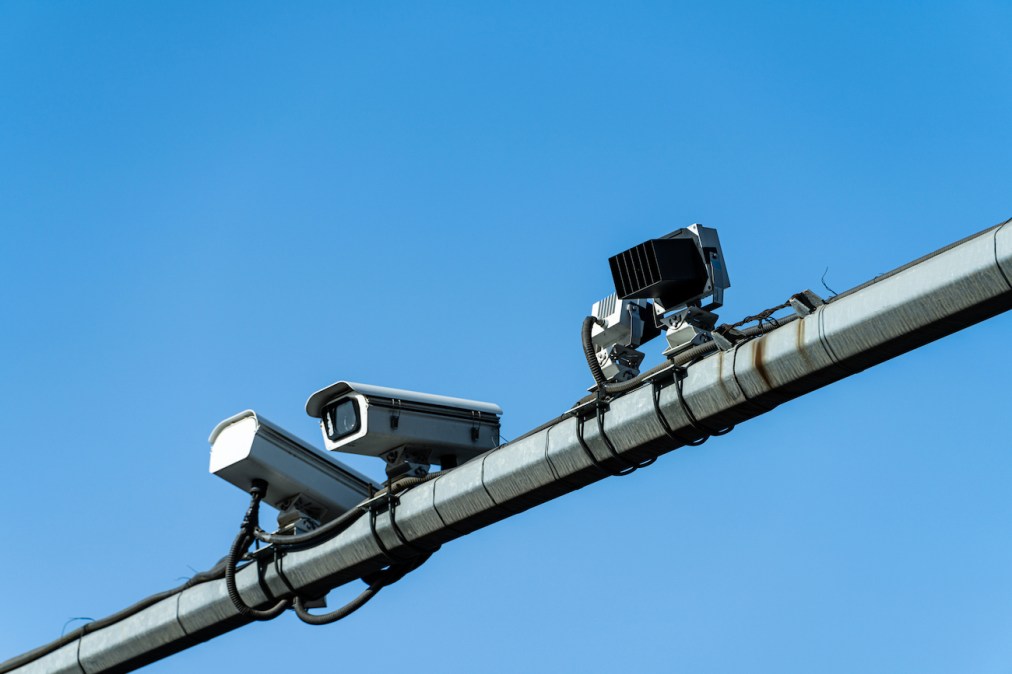St. Louis aldermen call mayor’s AI, surveillance tech executive order ‘half-baked’

An executive order signed by St. Louis, Missouri, Mayor Tishaura Jones on Friday that regulates how the city’s police department can use artificial intelligence and surveillance technology has drawn ire from several members of the city’s Board of Aldermen, who say it isn’t enough to ensure accountability.
Along with establishing usage rules, Jones’ executive order requires the St. Louis Metropolitan Police Department to make its policies for using surveillance technology or AI publicly available. Jones said during a televised news conference on Friday that the aim of the order was to urge the Board of Aldermen to pass legislation to reauthorize use of red-light and speed cameras in the city to curtail traffic crashes. But, the order is “half-baked,” according one city alderman, as it lacks oversight mechanisms.
The city’s use of red-light and speed cameras, which were deployed across St. Louis between 2007 and 2015, was found to be unconstitutional in 2015 by the state’s Supreme Court, which ruled that the statute placed “the burden of persuasion onto the defendant to prove that he or she was not operating the motor vehicle at the time of the violation,” according to reports from St. Louis Spectrum News.
“Transparency and accountability from the Police Department are central towards rebuilding trust with the St. Louis community. Doing this process well will begin to restore the legitimacy of the police in people’s minds,” Alderman Rasheen Aldridge, said in a news release about the order. “A half-baked effort will only further undermine community trust and injure SLMPD’s ability to work effectively in the communities they police.”
In September, several board bills were proposed in response to the need for traffic controls, including Board Bill 105, which would lay the groundwork for the redeployment of the cameras. The bill would allow the city to operate cameras that use facial recognition, databases and other technology, that could determine the driver of the vehicle — shifting the burden away from the accused in a legal situation.
Another piece of local legislation, Board Bill 185 which is sponsored by Aldridge, would establish oversight measures for the tech before it is deployed, requiring both a public hearing and majority Board approval.
“This Executive Order does not change my position in moving these bills forward. Our communities need lasting, durable policies that address their concerns and provide neighborhoods with additional resources to combat reckless driving,” Alderman Shane Cohn, the sponsor of BB 105, said in a news release.
But in the time since the bills were introduced in September, Jones said, four people have died and more than 100 have been injured in traffic crashes in St. Louis, according to a St. Louis Public Radio report.
“Everyone deserves to feel safe navigating our city by foot, by bike, by transit or by car,” Jones said during a televised news conference on Friday.
Jones’ order mandates data collected from any systems serve a “legitimate public safety purpose,” and controls SLMPD’s sharing of that information and data. It also prevents vendors from sharing or selling the data and information it collects, requires the department to submit an annual report to the Board of Aldermen that details the types of surveillance tools it uses, along with information about how much funding the tech requires.
The order also requires the state’s open records laws to be upheld when disclosing or releasing surveillance technology and data from the systems, but Board of Aldermen President Megan E. Green said it still isn’t enough.
“An Executive Order is an insufficient tool to achieve accountability. It simply requests compliance from departments and reiterates preexisting regulations related to police conduct established by federal law,” Green said in the news release. “Further, unlike ordinances which are codified in city code, Executive Orders can be overturned by future mayoral administrations. True accountability is a responsive relationship between the branches of government and the communities they serve.”
Both board bills are scheduled for committee hearings this week.



